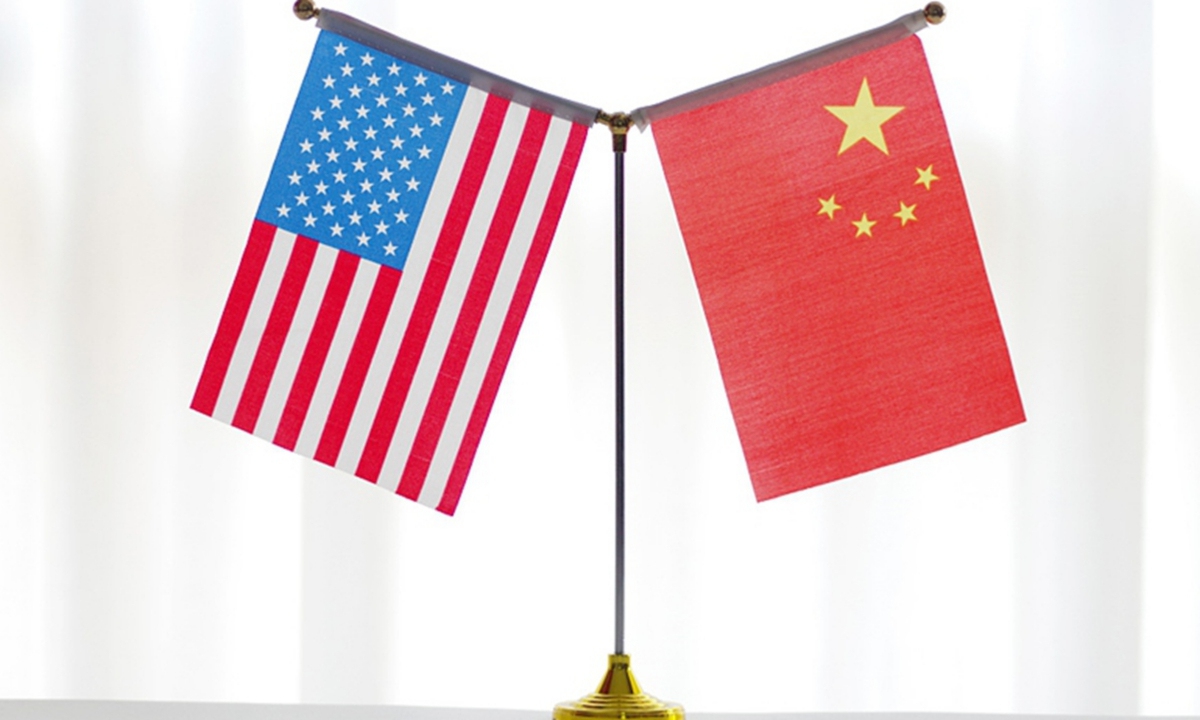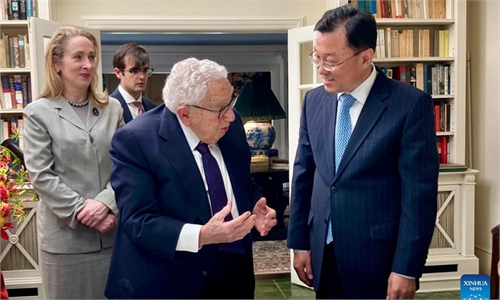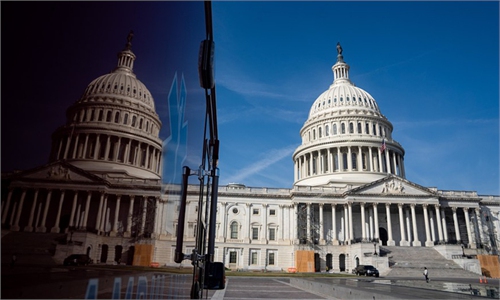
China US File Photo:CFP
US President Joe Biden said during the G7 meeting in Hiroshima, Japan earlier this month that he "is expecting" a thawing in Sino-American tensions "soon," which has raised hopes and optimism that the steady deterioration in bilateral relations since his inauguration in 2021 may be reversed, or at least not deteriorate further. But not everyone is that certain his remarks will bear fruit, if the US government does not repudiate its reckless policy of technological and industrial "decoupling" from China.Some positive signs are emerging that the senior-level talks, including the meeting between Communist Party of China (CPC) Central Committee Politburo member and director of the office of the Central Foreign Affairs Commission Wang Yi and White House national security advisor Jake Sullivan. Most significantly, the two nations agreed to maintain an important strategic channel for communication, which is certainly a positive step for the fraught relationship.
More ministerial-level meetings are needed at this point to shore up a "thawing" in which the two governments are able to talk candidly about their disagreements face-to-face and find ways to cooperate so as to pursue mutual benefit, particularly in trade, investment and a range of financial issues including how to maintain banking system stability and viability. It is true that the two nations face a growing list of economic and environmental issues before them, and neither side can afford to get them done alone, including climate change-induced global warming and desertification.
Despite the high tariffs imposed on a swathe of Chinese goods imposed by Donald Trump in 2018 and 2019, total commodities trade between the two nations exceeded $700 billion last year - a testament to deep integration of the world's two largest economies despite political headwinds originating from Washington. Also, some 300,000 Chinese students are enrolled at American universities each year and an increasing number of Chinese want to go sightseeing in America. The talk of a new "cold war" between the two countries is untrue and misleading.
However, the Biden administration's so-called "National Security Strategy" has listed China as one of America's major rivals, and privately, some hardcore China-haters in Washington define China as a major adversary, an unfair and unnecessary posture in Chinese people's eyes.
As a matter of fact, it's that bellicose rhetoric that has done the most harm to Sino-US ties since 2016, which even provided soil for the talk of Thucydides' explanation of the Peloponnesian War. By whatever metrics, neither the US or China poses an existential threat to the other at all, and a military conflict between China and US is insane, unimaginable and the least desirable thing on this globe, because it will cause unprecedented disaster for the whole humankind.
Keeping the channels of dialogue open between the two powers is of great importance and is the only viable way for the two nations to seek common ground, or agree to disagree, on the most divisive issues between them, which include the trade imbalance, intellectual property protection, in addition to maintaining peace in the Taiwan Straits and in the West Pacific region.
Used wisely, the dialogue will enable both countries better to understand one another's basic goals, articulate what they see as major differences and interests, and find ways to build on mutual understanding and trust.
Any knee-jerk decisions, such as the Trump administration' launching a tariff war on China, does not resolve any problems. Since 2018, the exorbitant tariffs have triggered waves of consumer price hikes and deeply trenched inflation in the US, forcing the US Federal Reserve to constantly raise benchmark interest rates, which in turn has increased borrowing costs and led to ordinary businesses and families suffering. As a result, in 2023 and 2024, the US economy is facing rising odds of slipping into recession.
The Biden administration's hardening of a technology "decoupling" by restricting the export of advanced semiconductor chips and associated manufacturing equipment to China is equally harmful to both economies. A tech war won't benefit the US as many American semiconductor makers will lose access to the huge Chinese market, equating to$300-$400 billion of revenue every year. Meanwhile, Chinese enterprises will be forced to increase investment on advanced semiconductor making tools. Once the bottleneck technology is resolved, the US may risk losing the Chinese market permanently.
Look back at China's footsteps to achieve rapid economic development from 1979 onwards, one should not neglect the fact that China is endowed a massive talent pool of skilled labor and has technological capabilities to maintain significant growth for a long time to come. Those people who wish for a protracted recession of Chinese economy will upset themselves. For Washington elites, attempting to slow or impede China's economic growth and development is not a realistic option. As the world's largest manufacturer and the center of the global industrial supply chain, nearly all countries aspire to complete more trade with China and gain more from commerce.
In the near term, bilateral relations are likely to remain tense to some extent and see ups and downs. The voices advocating working together and a constructive and realistic relationship will become louder and more persuasive, especially as the annual APEC summit is to be held in San Francisco, California, in mid-November this year.
Now it's time for the US to tone down the rhetoric of denigrating China's unique culture and political system. The two nations have to come to terms that although their cultures and systems of governance are different, and that these differences are real and ought to be acknowledged and respected by one another.
To sum up, the two countries are the world's largest economies, they could gain more from each other through faithful cooperation and healthy competition, but they should never engage in a zero-sum contest. Keeping communication channels open and operational is an important objective that will avert conflict and miscalculations, while building up mutual understanding and trust. If only a more constructive relationship is phased in, the whole world will benefit.
The author is an editor with the Global Times. bizopinion@globaltimes.com.cn



